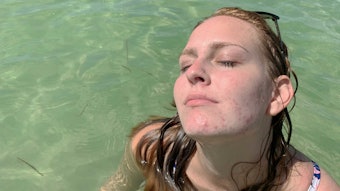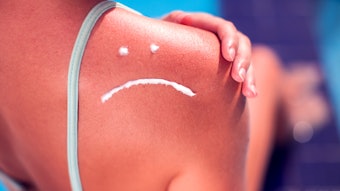At first glance, Hartford, Salt Lake City and Denver might not seem to have much in common. But a new survey by the American Academy of Dermatology (Academy) found these three cities outshine other U.S. cities in heeding dermatologists' advice on preventing and detecting skin cancer.
The “Suntelligence: How Sun Smart is Your City?” online survey polled more than 7,000 adults nationwide to determine their knowledge, attitudes and behaviors toward tanning, sun protection and skin cancer detection. Twenty-six cities were ranked based on respondents’ answers to several questions in each category.
“One common thread we found encouraging is that the majority of people polled expressed concern about skin cancer and had awareness of the importance of proper sun protection,” said dermatologist William D. James, MD, FAAD, president of the Academy. “However, we found that people’s behaviors did not always correlate with their concerns.”
Although Hartford, Salt Lake City and Denver ranked No. 1, 2 and 3, respectively, Cleveland, Chicago and Pittsburgh fell to the bottom of the sun-smart spectrum with rankings of 24, 25 and 26, respectively. When results for these cities were compared to the average collective responses for all survey respondents, significant differences were observed in the top- and bottom-ranked cities.
Hartford respondents excelled in their knowledge of sun protection and the risks associated with tanning, scoring above the average of adults overall. For example, only about one-third of respondents (35%) nationwide correctly answered the question that asked whether some types of ultraviolet (UV) rays are safe for your skin. Forty-two percent of Hartford respondents knew that this statement was not true – that all forms of UV exposure, from natural sunlight and artificial light sources such as tanning beds – are harmful.
Similarly, residents of Salt Lake City, Denver and Hartford all scored better than the national average when they disagreed with the statement that they are not too concerned about skin cancer because it is easily detected and treated. Overall, 76% of respondents nationwide disagreed with this statement, while 85% of respondents from Salt Lake City disagreed.
“While skin cancer can be successfully treated if detected early, the five-year survival rate for individuals with regional and distant stage melanomas are 65% and 16%, respectively. That’s why people must be vigilant about protecting their skin from sun exposure and aware of the early warning signs of skin cancer,” said Dr. James.
However, when examining skin cancer detection behaviors, nationally 59% of respondents had never been screened for skin cancer by a health-care provider. Respondents from Pittsburgh and Chicago fared even worse, with 69% of Pittsburgh respondents and 67% from Chicago admitting they had never had an examination. On the other hand, 48% of Hartford residents had never undergone a skin examination.
Despite dermatologists’ repeated warnings about the dangers of tanning, James added that respondents in last-place Pittsburgh scored significantly worse than the overall average when asked if people look more attractive with a tan. Specifically, 81% of Pittsburgh respondents agreed with this statement compared to 72% of the general public.
“We’re hoping the results of this survey will draw attention to the public’s need to change its attitudes toward tanning, which is the first step in changing behavior,” said James. “Our data show that most people are concerned about skin cancer, but they still need to modify their attitudes, behavior and knowledge to reduce their risk.”
The rankings of the 26 U.S. metropolitan cities are as follows:
- Hartford
- Salt Lake City
- Denver
- Tampa
- Boston
- Phoenix
- Atlanta
- Philadelphia
- Portland
- Baltimore
- Dallas
- Houston
- Miami
- San Francisco
- Washington, DC
- Detroit
- San Diego
- Cincinnati
- New York City
- Minneapolis
- St. Louis
- Los Angeles
- Seattle
- Cleveland
- Chicago
- Pittsburgh










